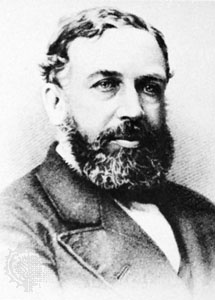Jevons, William Stanley
English economist and logician
born September 1, 1835, Liverpool, England
died August 13, 1882, near Hastings, Sussex
 English logician and economist whose book The Theory of Political Economy (1871) expounded the “final” (marginal) utility theory of value. Jevons's work, along with similar discoveries made by Karl Menger (Menger, Carl) in Vienna (1871) and by Léon Walras (Walras, Léon) in Switzerland (1874), marked the opening of a new period in the history of economic thought.
English logician and economist whose book The Theory of Political Economy (1871) expounded the “final” (marginal) utility theory of value. Jevons's work, along with similar discoveries made by Karl Menger (Menger, Carl) in Vienna (1871) and by Léon Walras (Walras, Léon) in Switzerland (1874), marked the opening of a new period in the history of economic thought.Jevons broke off his studies of the natural sciences at University College, London, in 1854 to take a post as assayer in Sydney, Australia. There he became interested in political economy and social studies. After his return to England in 1859, he completed two of his most original and seminal papers. The first, “General Mathematical Theory of Political Economy” (1862), outlined what came to be known as the marginal utility theory of value. This theory suggests that the utility or value to a consumer of an additional unit of a product is (at least beyond some critical quantity) inversely related to the number of units of that product he already owns. The second, “A Serious Fall in the Value of Gold” (1863), attempted to measure the rise in prices in the period following the gold discoveries in California and Australia. This work represents one of the greatest contributions to the theory of index numbers ever published. Yet it was not until the publication of The Coal Question (1865), in which Jevons called attention to the gradual exhaustion of Britain's coal supplies, that he received public recognition. He feared that as the supply of coal was exhausted, its price would rise. That conclusion was wrong, however, because it failed to account for improvements in the technology used to extract coal.
In 1866 Jevons was appointed to a chair of political economy at Owens College, Manchester. He moved to University College in 1876. Of his works on logic and scientific methods, the most important is his Principles of Science (1874). His other notable works include The Theory of Political Economy (1871) and The State in Relation to Labour (1882).
- Shantou
- Shantou wares
- Shantung
- shanty
- Shaoguan
- Shaowu
- Shaoxing
- Shaoyang
- Shao Yong
- shape-note hymnal
- shaper
- Shapey, Ralph
- Shapiro, Karl
- Shapley, Harlow
- Shaquille O'Neal
- Sharaf ad-Dīn ʿAlī Yazdī
- Sharavati River
- Sharett, Moshe
- Shariat-Madari, Mohammad Kazem
- sharif
- Sharif-Emami, Jafar
- Sharif, Nawaz
- shark
- Shark Bay
- Sharkey, Jack